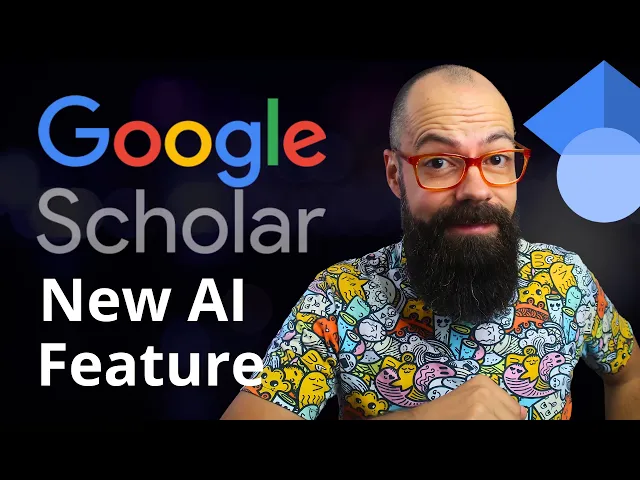Google Scholar’s Secret AI Feature Just Made Reading Papers 10x Faster

AI finally transforms academic research workflow
In the world of academic research, Google Scholar has long been a cornerstone tool, but its latest AI integration may represent the most significant advancement in how we process scholarly literature in decades. The platform's new AI summaries feature promises to revolutionize how researchers, professionals, and students interact with academic papers. While still in limited testing, this functionality offers a glimpse into how artificial intelligence is transforming knowledge work at its foundation.
Key Points
-
Google Scholar's new AI summaries condense complex academic papers into concise overviews, allowing researchers to quickly grasp a paper's core findings without reading the entire document.
-
The feature appears seamlessly integrated into the search interface, displaying a "Summary" tab alongside familiar options like "Cited by" and "Related articles," making the tool intuitive for existing users.
-
The AI-generated summaries show impressive comprehension of research methodologies, results, and implications, successfully capturing the essence of papers across diverse academic disciplines.
-
While still in limited testing, this functionality represents a significant step toward AI becoming an indispensable research assistant rather than merely a search tool.
Why This Changes Everything
The most profound insight here isn't just that Google has developed another AI feature—it's that this particular implementation fundamentally changes the economics of knowledge consumption. Academic papers have historically represented one of the highest-friction information formats: dense, jargon-heavy, and time-consuming. What Google Scholar's AI summaries offer is nothing less than a compression algorithm for human knowledge.
This matters immensely because the bottleneck in research productivity has never been access to information (we've solved that problem with digitization) but rather the human capacity to process it. A researcher who previously might have skimmed 5-10 papers in a day could potentially review summaries of 50-100, radically changing their ability to stay current in their field or explore adjacent research areas.
Beyond Google's Implementation
What's particularly interesting is considering how this technology might evolve beyond Google's initial implementation. Microsoft's Academic has been discontinued, leaving an opening for competition in this space. Imagine a specialized research tool that not only summarizes individual papers but creates meta-analyses across dozens of related studies, identifying patterns that even dedicated researchers might miss when reading sequentially.
Several startups are already moving in this direction
Recent Videos
How To Earn MONEY With Images (No Bullsh*t)
Smart earnings from your image collection In today's digital economy, passive income streams have become increasingly accessible to creators with various skill sets. A recent YouTube video cuts through the hype to explore legitimate ways photographers, designers, and even casual smartphone users can monetize their image collections. The strategies outlined don't rely on unrealistic promises or complicated schemes—instead, they focus on established marketplaces with proven revenue potential for image creators. Key Points Stock photography platforms like Shutterstock, Adobe Stock, and Getty Images remain viable income sources when you understand their specific requirements and optimize your submissions accordingly. Specialized marketplaces focusing...
Oct 3, 2025New SHAPE SHIFTING AI Robot Is Freaking People Out
Liquid robots will change everything In the quiet labs of Carnegie Mellon University, scientists have created something that feels plucked from science fiction—a magnetic slime robot that can transform between liquid and solid states, slipping through tight spaces before reassembling on the other side. This technology, showcased in a recent YouTube video, represents a significant leap beyond traditional robotics into a realm where machines mimic not just animal movements, but their fundamental physical properties. While the internet might be buzzing with dystopian concerns about "shape-shifting terminators," the reality offers far more promising applications that could revolutionize medicine, rescue operations, and...
Oct 3, 2025How To Do Homeless AI Tiktok Trend (Tiktok Homeless AI Tutorial)
AI homeless trend raises ethical concerns In an era where social media trends evolve faster than we can comprehend them, TikTok's "homeless AI" trend has sparked both creative engagement and serious ethical questions. The trend, which involves using AI to transform ordinary photos into images depicting homelessness, has rapidly gained traction across the platform, with creators eagerly jumping on board to showcase their digital transformations. While the technical process is relatively straightforward, the implications of digitally "becoming homeless" for entertainment deserve careful consideration. The video tutorial provides a step-by-step guide on creating these AI-generated images, explaining how users can transform...
